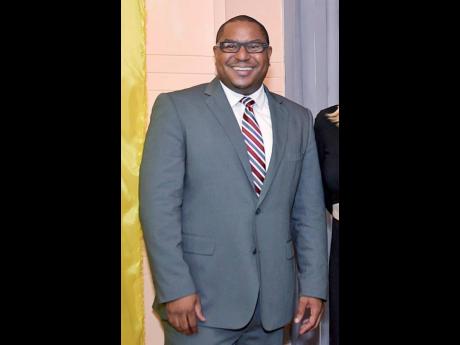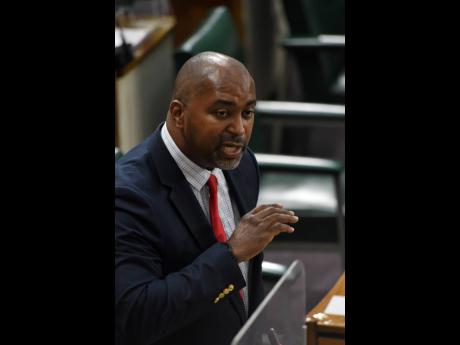$280m DRMA windfall
Nearly $280 million in fines was extracted from Jamaicans under the legislation used by the Government to manage the local outbreak of the COVID-19 pandemic, new figures have revealed.
The $276 million windfall came from 19,423 cases against 17,288 individuals and entities in the parish courts for various breaches of the Disaster Risk Management Act (DRMA) between March 2020 and December last year, according to the figures obtained from Court Administration Division (CAD).
One hundred and thirty-four people were imprisoned for not paying court-ordered fines, ranging from a high of $540,000 to a low of $500.
Over the 22-month period, 10,009 people were charged for breaching the DRMA, 7,866 were charged for breaching the curfew orders, while 1,211 were placed before the courts for not wearing masks.
Other offences included failure to close a business establishment at the stipulated time, failure to maintain social distance, breach of the public gathering limits, breach of the Quarantine Act, and being in a public place that should be closed.
Public commentator Gavin Goffe believes the windfall is “alarming”, given the failure by the Government to enact changes that had been proposed for the DRMA. The changes would have stipulated minimal fines for some offences and authorise the police to issue tickets for others, such as mask mandate breaches.
Goffe cited, for context, figures included in the Budget, which show that revenues from traffic fines amounted to $153 million for the 2020-2021 fiscal year and $150 million for the previous fiscal year.
“So, to think that they could have collected essentially two years’ worth of traffic fines from the DRMA alone just shows how preposterous it is when you consider … the real risks to life and limb that traffic offences create,” he said during a Sunday Gleaner interview on Friday.
“If we, in fact, collected essentially over a quarter billion dollars in that short space of time, and a large percentage of that is accounted for in masks, I would be horrified,” he added.
The issue, for the parliamentary Opposition, is that “by and large”, the people who were placed before the courts and fined are among the most vulnerable and marginalised in the society.
“If you look at the category of people who have had to pay these hefty fines, disproportionately, the majority of them are poor people,” said Opposition Spokesman on Finance Julian Robinson.
Jamaica recorded its first case of COVID-19 in March 2020.
MANAGING PANDEMIC
Orders under the 2015 DRMA were rolled out shortly thereafter as the primary legislative vehicle to drive the Government’s response to the expected outbreak of the respiratory illness, which has since killed more than 2,800 people locally and afflicted upwards of 129,000.
Nightly all-island curfews, public gathering limits, event restrictions and mask mandates were among the suite of measures imposed.
The legislation provides for fines of up to $1 million and a maximum prison time of one year.
The COVID-19 orders under the act were lifted last month as Jamaica’s infection numbers receded.
In March last year, while the order were in effect, Prime Minister Andrew Holness announced that the Government was “on track” to introduce proposed changes to the law and “very close” to completing work on the supporting legislation.
A bill to amend the DRMA introducing enforceable penalties against persons who commit breaches of COVID-19 under the act was passed in March 2021 in both Houses. The amendments, which Local Government Minister Desmond McKenzie said were “crafted in pursuit of clear objectives”, introduced fines ranging from $3,000 to $500,000.
“The circumstances in which the act can be invoked have been expanded to ensure that the Government has, at all times, the legislative authority within which it can respond swiftly to challenges and secure the interests of the population,” McKenzie, who piloted the bill in the Lower House, said then. “At the same time, these changes set out clear sanctions for those who undermine the mission of balancing lives and livelihoods through personal and other forms of irresponsibility ... .”
Holness had also said that a ticketing process would be introduced.
Up to late yesterday, there was no response from the Holness administration to Sunday Gleaner questions about the failure to enact the ticketing system and criticisms that it exposed mainly ordinary Jamaicans to massive fines.
But Goffe, an attorney-at-law, believes “it is not even open for debate” that this failure opened the door for hefty fines imposed on citizens like the St Thomas man who spent a month in prison last year because he could not pay the $200,000 penalty for not wearing a mask in public.
PARISH BREAKDOWN
Some 592 people in St Thomas were ordered to pay $21.8 million to cover fines for 770 offences under the DRMA over the 22-month period reviewed by CAD.
Two hundred and seventy-eight cases were for curfew breaches, 265 were for failing to wear a mask in public while 204 were for DRMA breaches.
The fines ranged from a low of $1,000 to a high of $500,000.
“The absence of the ticketing regime is something all were warned about, that it would create the very problem it ended up creating,” said Goffe.
Robinson, who is also member of parliament for St Andrew South Eastern, said the ticketing system was expected to lower fines and “certainly you wouldn’t have had custodial sentences being imposed on people who couldn’t afford the fine”.
The parishes with large urban centres accounted for the bulk of the fines imposed by parish court judges.
Approximately $66 million in fines was collected in the Corporate Area courts, which cover Kingston and St Andrew. St James was next highest, with $43.8 million, followed by Clarendon’s $39 million.
The Corporate Area fines were collected from 3,839 people charged with 4,528 offences, 90 per cent of which were for breaching the nightly curfew.
The $2.8 million collected in Portland was the lowest for all parishes.
Clarendon-based music selectors DJ Taurus and DJ Live are among the 1,677 people fined in the parish for breaches of the DRMA.
DJ Live, whose name is Tyson Henry, was fined a total of $150,000 for separate cases of breaching the curfew hours, while DJ Taurus – Lemar Pusey – forked out $100,000 for breaching the curfew and $20,000 for not wearing a mask in public, the latter admitted.
Both men were playing music “an enjoy weself” at a backyard party more than four hours after the start of the 8 p.m. curfew, when cops swooped in, Pusey acknowledged.
He is still not happy with the fines because “it lick me wicked”, but accepts that the Government has a job to do.
“Me have a issue with it, but at the end of the day, the Government a do dem work. We a breach the curfew hours so dem a do what dem have to do,” Pusey conceded.
Goffe said he was in “full support” of the stiff penalties imposed on promoters of illegal parties that could easily have become super-spreader events.



